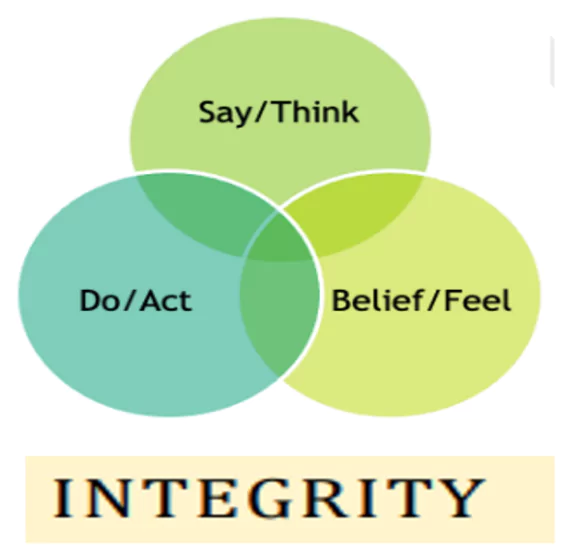Answer:
Approach:
|
Introduction:
The given statement by Samuel Johnson depicts the intrinsic relation among integrity and information, both of which can be critical components of governance. Integrity is the integration of beliefs, convictions, standards, beliefs and behaviors.
Body:
Here’s an explanation of the statement with illustrations from a modern-day context, focusing on specific Indian examples:

Integrity without knowledge is weak and useless:
Knowledge without integrity is dangerous and dreadful:
Importance of combining integrity and knowledge:
Upholding integrity and promoting knowledge:
Conclusion:
Thus, knowledge and integrity are balancing wheels of the same cart. One shows the right path and the other provides willingness to take that path.
To get PDF version, Please click on "Print PDF" button.
Galgotias Robodog Scandal: India’s AI Sovereignt...
DGCA Proposal on 30-Day Flying Ban: Safety vs Pass...
Supreme Court Refers RTI Amendment Under DPDP Act ...
India–France Strategic Partnership and the Indo-...
The 1946 Royal Indian Navy Revolt: Solidarity amid...
Great Nicobar Island Project: NGT Upholds Environm...
US Supreme Court Blocks Trump’s IEEPA Tariffs on...
Pax Silica Initiative: India Joins Global Coalitio...
News in Shorts: 21 February 2026
Strait of Hormuz: Central to Global Energy Securit...
PAC Flags Poor Implementation of SANKALP Scheme Af...
IIT Madras Develops Optics-Based Blood Clotting Te...

<div class="new-fform">
</div>
https://uploads.disquscdn.com/images/2131689cdebd16dace0727eb26f6be465b003b60f042074410effdf82fd96f24.jpg https://uploads.disquscdn.com/images/6660eb50984f5767b8c4a7dae1f8df6a392bd92a2e940a4d84a09f62cbec82a3.jpg
https://uploads.disquscdn.com/images/f199ed3b210bf911aab388c1295e1ba5273b6dd1291fa0393f19fecdcc7211c0.jpg https://uploads.disquscdn.com/images/ed02b3c9c3abc492251e74b575773f05498aaa225934164706108f6aad4eadff.jpg
https://uploads.disquscdn.com/images/f4907d08df1fc7a15dcec0d94f48ef0c64af9215871fec6ede8852effccdd7b9.jpg https://uploads.disquscdn.com/images/02f1eac6c6120c3c4eeb5c8ece3b3c1c39dfb5ca071bda72898f72cd6c5d4bb0.jpg
https://uploads.disquscdn.com/images/34e1461a0d74bdc93cba31848a0fb35bbec8e31b9ec38bb08895ac222041cbc2.jpg https://uploads.disquscdn.com/images/56e1dc5b45c2018a5808d05c9c49f7205ff4a5d4b43b8882b008cb60aa916882.jpg
https://uploads.disquscdn.com/images/85781cb034a4673f56258f32db1a4f760c60aec4e97cebd211d139942aec6212.jpg https://uploads.disquscdn.com/images/28304f7fcba13aa0a0c3a30406591c3cb8ed95677d15261db4a84233707122d1.jpg
https://uploads.disquscdn.com/images/e69a50930fc51340059021a10cbb3d66f2a94380d3d8ef3bd75bdde29dbbc858.jpg https://uploads.disquscdn.com/images/09398f23e2509b662beb95969ce7e54e7fda21e49ead7d8c04958506148577dd.jpg